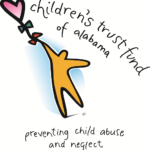By Cassidy Webb

April is Alcohol Awareness Month, founded and sponsored by the National Council on Alcoholism and Drug Dependence. The purpose of Alcohol Awareness Month is to shatter the stigma that commonly surrounds alcoholism by encouraging individuals and communities to speak openly and honestly about alcoholism and recovery. This year’s theme is “Help for Today, Hope for Tomorrow”.1
A study published by the CDC reports that nearly one-third of Americans over 18 are hard drinkers, but only 10% of those suffer from alcohol use disorder.2 Differentiating between the hard drinker and the true alcoholic can sometimes be difficult. All may drink heavily, face consequences for their drinking habits, and have a love for alcohol, but there are some definite differences between the two.
The Hard Drinker vs. The Alcoholic
While a true alcoholic does drink heavily, not all people who drink heavily have alcohol use disorder.3 People who are considered hard drinkers can be binge drinkers, where they may drink more than the recommended amount in one sitting, or drink more on a daily basis than the average person. These people may experience consequences of their drinking, such as facing a DUI or having health issues as a result of their drinking.

A person who suffers from the disease of alcoholism is different from the hard drinker in the way that they have lost the power of choice and control. When a hard drinker faces a consequence of their drinking, they are able to put down the drink and stop when they need to. However, when a person with alcohol use disorder faces a consequence of drinking, they may promise themselves that they won’t drink again, then find themselves at the bottom of a bottle a few hours later, as if they have no choice but to take a drink.
In addition, the hard drinker may be able to control the amount they drink if they have to. They can take one drink and stop. The alcoholic on the other hand, will believe wholeheartedly that they are going to stop after one drink, then somehow find themselves several drinks later wondering what happened to that control they thought that they had.
Physical and Mental Manifestations of Alcohol Use Disorder
To be diagnosed with alcohol use disorder, there are physical and mental manifestations of the disease of alcoholism that one will suffer from. When alcohol is consumed over an extended period of time, the body will begin to build a tolerance, requiring an increasing amount of the substance to produce the desired effects.4
As a person increases their alcohol intake, their body will develop a physical dependence on the substance. This occurs when withdrawal symptoms are experienced if alcohol is suddenly removed from the body for a period of time. During alcohol withdrawal, a person may experience any or all of these symptoms:5
- Anxiety, irritability, and insomnia
- Headache
- Nausea and vomiting
- Profuse sweating and shaking
- Confusion or memory loss
- High blood pressure
- Fever
- Auditory or visual hallucinations
- Seizures
Aside from the physical manifestations of alcohol use disorder, a person may also experience intense mental cravings for alcohol. Their thinking may be distorted and they may constantly obsess over drinking as it progressively plays a more important role in their life. They may continuously attempt to stop or control the amount that they drink and be unsuccessful, or may persistently continue drinking despite knowing that it is harming them mentally and physically.
Questions to Ask Yourself
If you are wondering whether or not you have a problem, here are some questions you can ask yourself to evaluate your relationship with alcohol.6
- Have you tried to cut down your alcohol intake but found yourself unable to control the amount you drink?
- Have you experienced a craving, or intense desire, to drink even when you shouldn’t be drinking?
- Have you continued to drink even after facing family, financial, or legal consequences?
- Have you placed alcohol as a higher priority than work, family, or household obligations?
- Do you find yourself having to consume more alcohol over time to feel the way you want to feel?
- Does drinking interfere negatively with your personal relationships or career?
- Have you experienced any of the above withdrawal symptoms when you didn’t have alcohol in your system?

If you answered yes to any of these questions, rest assured, alcohol use disorder is a treatable disease that millions have recovered from. The first step is to admit that you have a problem and are willing to accept help. Once you reconcile the fact that you need help, there are detoxes and treatment centers available nationwide who are ready to help you recover from alcoholism.
- https://www.facingaddiction.org/resources/alcohol-awareness-month
- https://www.cdc.gov/pcd/issues/2014/14_0329.htm
- https://www.health.harvard.edu/blog/heavy-drinkers-arent-necessarily-alcoholics-may-almost-alcoholics-201411217539
- https://www.medicalnewstoday.com/articles/157163.php
- https://www.webmd.com/mental-health/addiction/alcohol-withdrawal-symptoms-treatments#1
- https://journeypureriver.com/heavy-drinking-alcoholism/
Cassidy Webb is an avid writer from South Florida. She advocates spreading awareness on the disease of addiction. Her passion in life is to help others by sharing her experience, strength, and hope.








